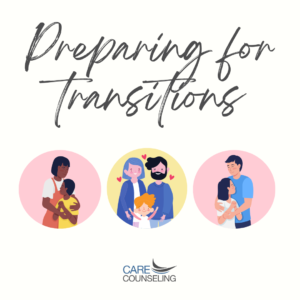Preparing for Kindergarten, Middle School, or High School
 Transitions are significant milestones in a child’s educational journey, marked by excitement, uncertainty, and growth. Whether your child is starting kindergarten, moving to middle school, or transitioning to high school, careful preparation can ease the process and help them embrace the change with confidence
Transitions are significant milestones in a child’s educational journey, marked by excitement, uncertainty, and growth. Whether your child is starting kindergarten, moving to middle school, or transitioning to high school, careful preparation can ease the process and help them embrace the change with confidence
Starting Kindergarten
Kindergarten is a foundational step in a child’s educational path, setting the stage for future learning experiences. As a parent, your role in easing this transition is paramount.
- Visit the School: Familiarize your child with the school environment by arranging visits before the first day. Explore the classrooms, play areas, and facilities together to alleviate any anxiety.
- Establish Routines: Start implementing routines that mirror the school schedule. This helps your child adjust to the structure of the school day and enhances their sense of security.
- Develop Social Skills: Encourage playdates and social interactions to help your child develop essential social skills. Practicing sharing, taking turns, and effective communication will prepare them for classroom interactions.
- Promote Independence: Teach basic skills such as dressing themselves, using the restroom, and packing their backpack. Independence fosters confidence in handling daily tasks at school.
- Read Together: Read books about starting school to initiate conversations and address any concerns your child might have. This can help them understand what to expect and alleviate apprehensions.
Transitioning to Middle School
Middle school is a period of increased independence and academic rigor. Preparing your child for this transition involves both practical and emotional support.
- Tour the New School: Arrange a tour of the middle school campus to help your child become familiar with the layout and facilities. This reduces anxiety on the first day.
- Organizational Skills: Middle school often requires managing multiple classes and assignments. Teach your child organizational skills such as using planners, managing time, and keeping track of deadlines.
- Encourage Self-Advocacy: Middle school introduces more teachers and subjects. Encourage your child to ask questions, seek help when needed, and communicate with teachers independently.
- Boost Study Habits: Guide your child in developing effective study habits. Help them create a designated study space, manage distractions, and establish a consistent routine.
- Navigate Friendships: Middle school can bring changes in social dynamics. Have open conversations about friendships, peer pressure, and the importance of choosing positive influences.
Transitioning to High School
High school marks a pivotal phase in a student’s life, with increased academic challenges and opportunities for personal growth.
- Course Exploration: Research the courses and extracurricular activities offered by the high school. Involve your child in the decision-making process to align their interests and goals.
- Time Management: High school demands effective time management. Teach your child techniques such as creating study schedules, prioritizing tasks, and maintaining a balanced routine.
- Goal Setting: Encourage your child to set both short-term and long-term goals. Discuss their aspirations and guide them in creating a roadmap to achieve those goals.
- Healthy Peer Relationships: Address topics like peer pressure, bullying, and maintaining healthy relationships. Equip your child with communication skills to handle these situations with confidence.
- Seeking Support: High school introduces advanced coursework and higher expectations. Encourage your child to seek academic support when needed, whether from teachers, tutors, or peers.
General Tips for All Transitions
- Emphasize Positivity: Highlight the exciting aspects of the upcoming transition to alleviate any apprehensions. Focusing on new experiences and opportunities can shift the perspective.
- Open Communication: Keep the lines of communication open with your child. Allow them to express their feelings, concerns, and questions, and provide thoughtful responses.
- Practice Problem-Solving: Teach your child problem-solving skills to address challenges they might encounter. Role-play different scenarios to boost their confidence in handling situations independently.
- Supportive Network: Foster connections with teachers, counselors, and school staff who can provide guidance during the transition. Engaging with other parents can also provide valuable insights.
- Celebrate Achievements: Acknowledge your child’s achievements, no matter how small, as they navigate the new phase. Celebrating milestones boosts their self-esteem and motivation.
Transitions, whether starting kindergarten, moving to middle school, or transitioning to high school, are moments of growth and development for your child. By providing the right support, guidance, and preparation, you can empower them to embrace these changes with confidence. Encourage open communication, teach valuable skills, and emphasize the positive aspects of each new chapter. With your unwavering support, your child can navigate these transitions successfully and flourish in their educational journey.



























